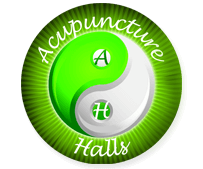
Photo credit to freepik.com
Complementary medicine and alternative medicine are often used interchangeably, but they are not the same. While both types of medicine are used to improve health, there are important differences between them that can affect the way they are used and the outcomes they produce.
Complementary medicine and alternative medicine are both terms that refer to medical practices that are not considered to be part of mainstream, conventional medicine. The key difference between the two is how they are used in relation to conventional medicine.
Both terms can be used to refer to a wide range of practices, including traditional practices (such as acupuncture and Ayurvedic medicine) as well as more modern practices (such as naturopathy and homeopathy). The terms are often used interchangeably.
Complementary Medicine
Complementary medicine is a type of medicine that is used in conjunction with conventional medicine. This means that it is used alongside traditional Western medicine, rather than as a replacement. Complementary medicine is sometimes referred to as integrative medicine, because it combines different forms of medicine to provide a holistic approach to health.
Examples of complementary medicine include acupuncture, massage therapy, and herbal supplements. These treatments are often used to help alleviate symptoms or side effects of conventional medicine, such as pain, nausea, or fatigue. Complementary medicine can also be used to support the body’s natural healing process, boost the immune system, or promote relaxation and stress reduction.
One of the key benefits of complementary medicine is that it can provide patients with more options for managing their health. It allows patients to take a more active role in their own health care by incorporating different treatments and therapies into their treatment plan. Additionally, complementary medicine can help improve the overall effectiveness of conventional medicine by addressing underlying issues that may be contributing to health problems.
Alternative Medicine
Alternative medicine, on the other hand, is a type of medicine that is used in place of conventional medicine. This means that it is used as a substitute for traditional Western medicine, rather than in conjunction with it. Alternative medicine is sometimes referred to as holistic medicine, because it focuses on treating the whole person rather than just the symptoms of a specific condition.
Examples of alternative medicine include homeopathy, naturopathy, and traditional Chinese medicine. These treatments are often based on natural remedies, such as herbs, vitamins, and minerals, and are used to treat a wide range of health problems. Alternative medicine may also involve lifestyle changes, such as dietary changes or exercise, to improve overall health and prevent disease.
One of the key benefits of alternative medicine is that it provides patients with an alternative to conventional medicine, particularly for those who may be hesitant to use Western medicine due to concerns about side effects or a desire for a more natural approach to health care.
The Differences Between Complementary and Alternative Medicine
While complementary medicine and alternative medicine share some similarities, they are fundamentally different. The key difference between the two is that complementary medicine is used in conjunction with conventional medicine, while alternative medicine is used in place of it.
Another important difference is that complementary medicine is generally considered to be safer and more effective than alternative medicine, as it is based on scientific evidence and has been tested in clinical trials. Alternative medicine, on the other hand, may lack scientific evidence to support its effectiveness and safety, and may even be harmful in some cases.
Conclusion
Complementary medicine and alternative medicine are two different approaches to health care that can offer patients a range of options for managing their health. Complementary medicine is used in conjunction with conventional medicine, while alternative medicine is used in place of it. While both types of medicine can provide benefits, it is important to consider the risks and benefits of each approach and to consult with a healthcare professional before using any type of alternative or complementary medicine.
Looking for a clinic that offers alternative and complementary treatments with a reliable and licensed practitioner? visit Acupuncture Halls clinic at San Juan Capistrano. For an appointment, call 949-510-6333 or complete this form.
